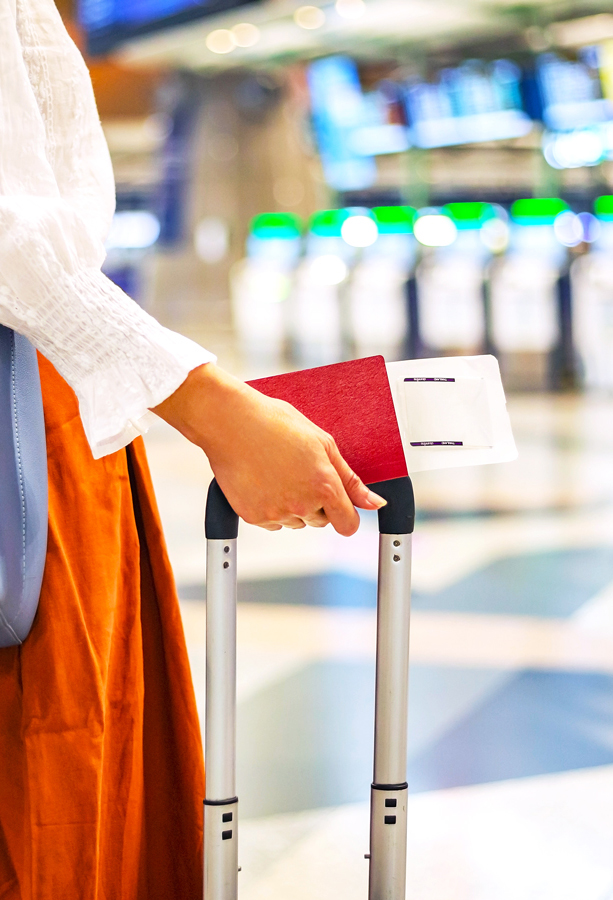The cost of airfare is a major concern for many travelers when they’re planning a trip. From the hotel room to daily meals and tourist attractions, the price of even a well-planned vacation can add up fast, leading many people to spend hours combing airline and travel comparison sites to save significant dollars on the journey there and back. Fares rise and drop daily, which doesn’t make the process of scouring any easier, but even more frustratingly, the price you see at first glance will often increase significantly by the time you finish booking. These are six of the sneakiest airline fees you’ll come across — but they can be avoided altogether if you know what to look for.
Baggage
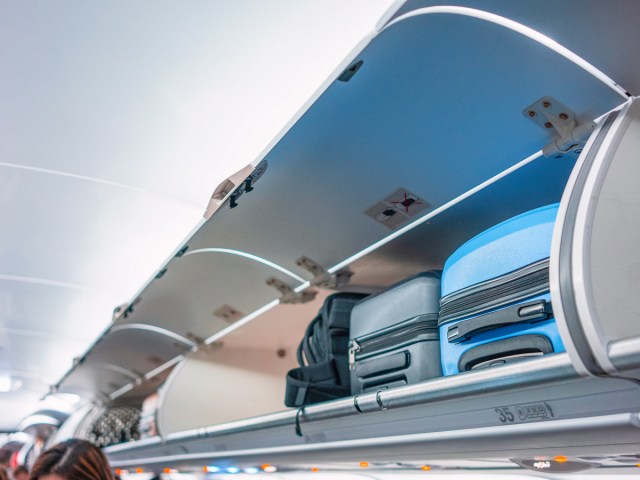
Packing light is the golden rule for frequent travelers — particularly because airlines can be especially unforgiving when it comes to overweight or bulky baggage. Many tickets booked with low-cost carriers or even some basic economy class fares on legacy airlines do not include a carry-on bag, so double-check that your ticket includes a bag before you buy that option. Some fares that do include a carry-on might be a better deal in the end.
If you decide to book via a budget airline, be sure to pay for your bag online, as the cost to add a bag at the airport is almost always higher. Also check the carry-on size and weight requirements. They vary drastically from airline to airline — from as little as 15 pounds to as much as 50 pounds — and if you accidentally go a few ounces over, you may be asked to pay as much as $100 at the check-in desk.
If you’re concerned about your carry-on size, consider checking your bag instead. Oftentimes, checking a bag is actually cheaper than bringing a carry-on, as the weight and size requirements are more generous (though you’ll still want to carefully check those). Plus, if the cabins are tight and you’re in the last boarding group, gate agents or flight attendants may insist you put your carry-on under the plane anyway.
And don’t forget about personal items. Some airlines will allow backpacks to qualify, while others only consider small handbags, briefcases, and purses to be personal items. And if you don’t read your airline’s guidelines for packing, you also may be forced to pay at the gate for your large personal item. But on the bright side, if your airline allows a backpack as a personal item, you may not even need that carry-on at all.
Seat Selection
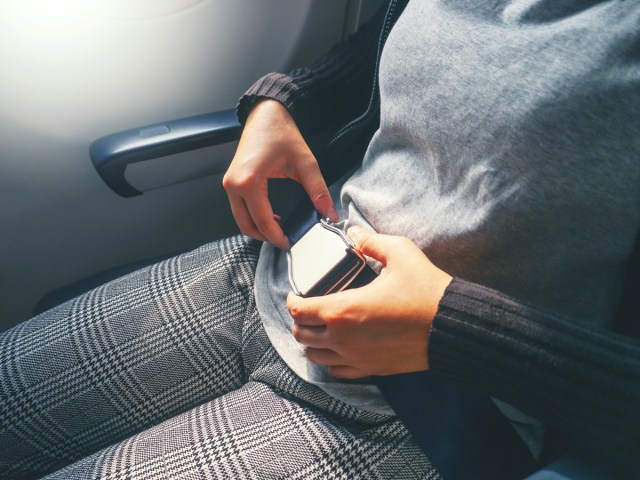
Many airlines will assign your seat automatically with the cheapest fares, so if you’re picky about sitting by the window, you’ll have to pay an additional fee to choose your seat beforehand. These seat selection fees can cost anywhere from $5 to well upwards of $50 per flight.
So, how can you avoid paying just to avoid the middle seat? One easy way is to choose an airline with lower seat selection fees or none altogether. Southwest Airlines allows all passengers to choose their own seat when they board the plane, based on boarding numbers assigned by time of check-in. Other airlines such as Alaska Airlines, Hawaiian Airlines, JetBlue, and United Airlines have lower seat selection fees (averaging less than $10). And if you don’t mind your seat preference, another alternative is to simply skip seat selection altogether. If the flight is half empty, chances are good that you may be assigned the window seat after all.
Boarding Passes
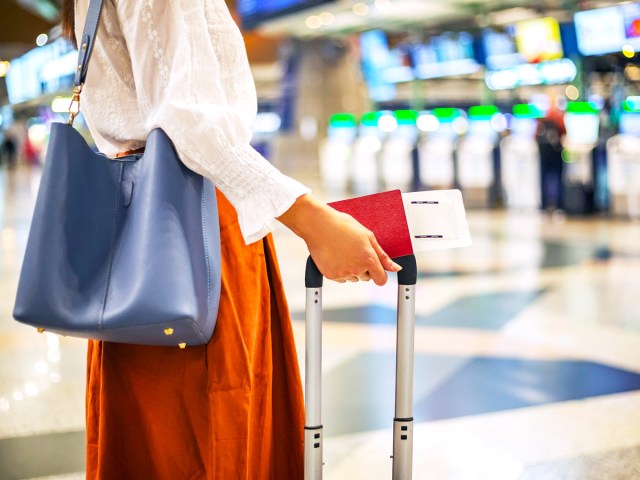
Gone are the days when every passenger received a complimentary paper ticket detailing their flight info. If you want something physical in your hands to help navigate the terminal, you may have to pay extra for that — depending on which airline you choose. Breeze Airways charges customers $3 to print a boarding pass, while Allegiant Air charges $5. Even worse, carriers such as Spirit and Frontier Airlines can charge travelers up to $25 for this piece of paper. Avoid this sneaky airline fee by simply printing your boarding pass when you check in at home or downloading airline apps to get a digital boarding pass with a QR code.
Convenience Booking Fee
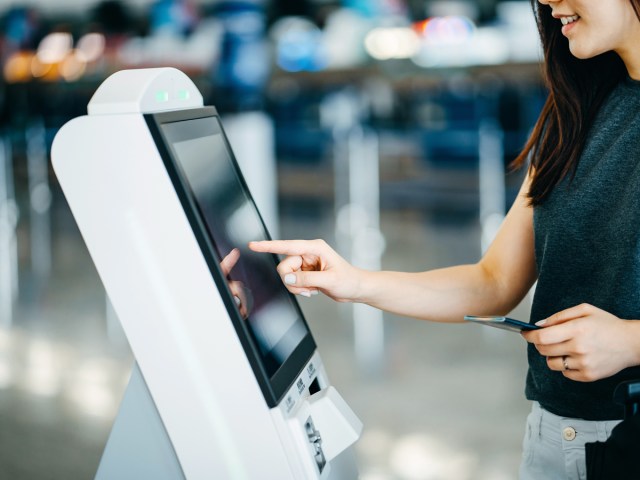
You may have seen a convenience fee tacked on if you’ve ever bought tickets to a concert through an online ticketing platform, but did you know that this same fee might appear if you purchase a flight? Some airlines — particularly budget carriers — charge travelers convenience fees for using a credit card upon checkout or for the simple “convenience” of purchasing a ticket online. If you’re really devoted to avoiding unnecessary fees, you can book your ticket at the airline counter or pay in cash. It might be worth it if your local airport is close by.
In-Flight Amenities

Even if you’ve already paid for a little extra legroom and that window seat, it’s easy to be tempted to pay for in-flight amenities — such as blankets, earphones, entertainment, Wi-Fi, and other add-ons. Many budget carriers don’t even offer complimentary snacks and beverages, so be sure to research your airline’s onboard services before you ask for that cup of water or bag of pretzels. When packing, try to bring lots of snacks, a reusable water bottle to fill up before you board, your own headphones, and lots of reading materials. The onboard Wi-Fi probably won’t be worth it if it’s a short flight.
Travel Insurance

Another option you’ll be prompted to add during checkout is travel insurance. It’ll be one of the last questions you have to answer when purchasing a flight, and many airlines set the default answer to yes, unless you decide otherwise. You’ll want to carefully consider your individual circumstances, but in many cases travel insurance booked through the airline likely isn’t worth it — especially if you book the flight using a travel rewards credit card. Cards such as the CapitalOne Venture, Chase Sapphire Preferred, and others offer travel insurance as part of their benefits for cardholders, so in the event your flight is canceled or delayed or something else interferes with your travel plans, you will still be protected.
More from our network
Daily Passport is part of Inbox Studio, an email-first media company. *Indicates a third-party property.






